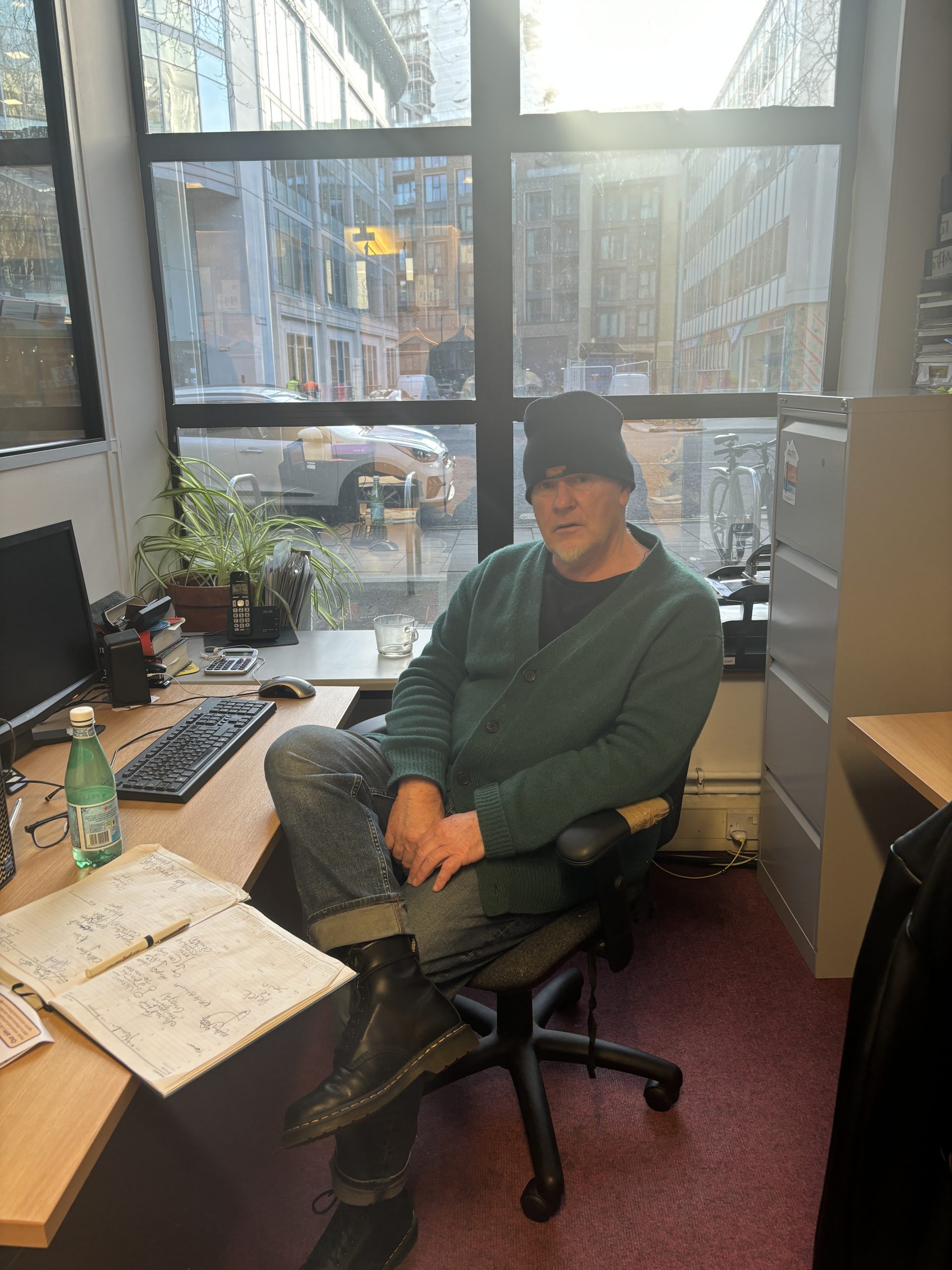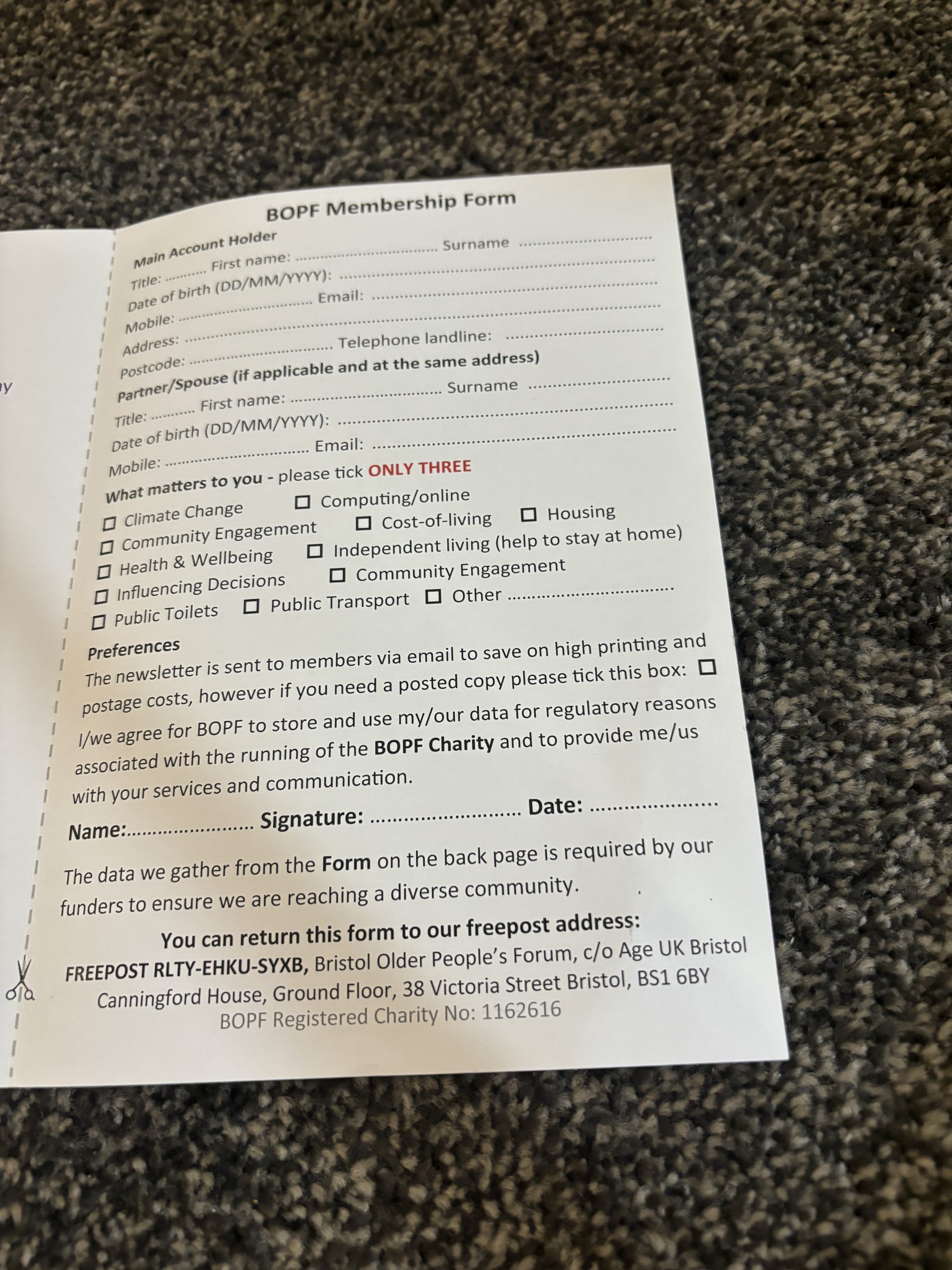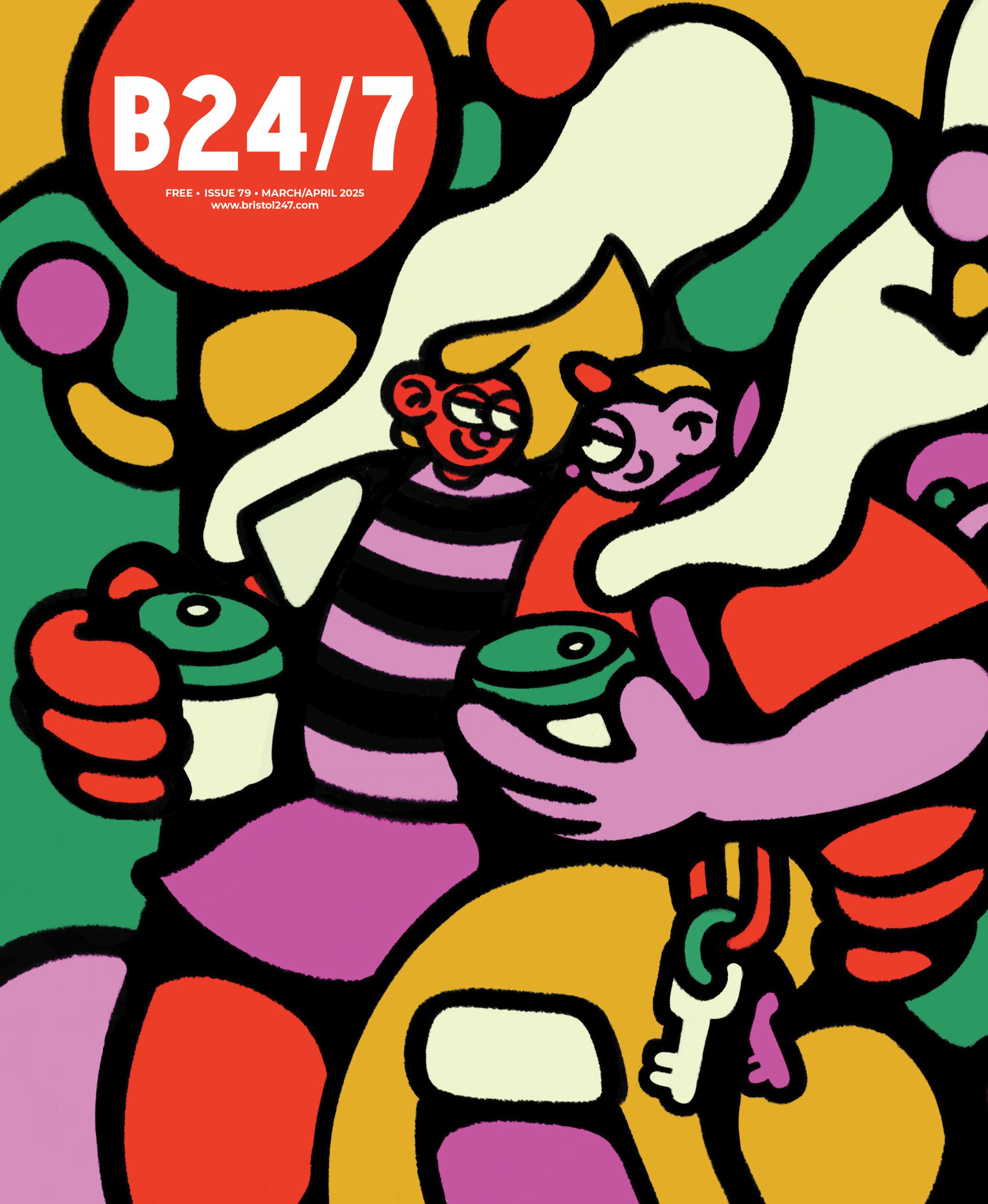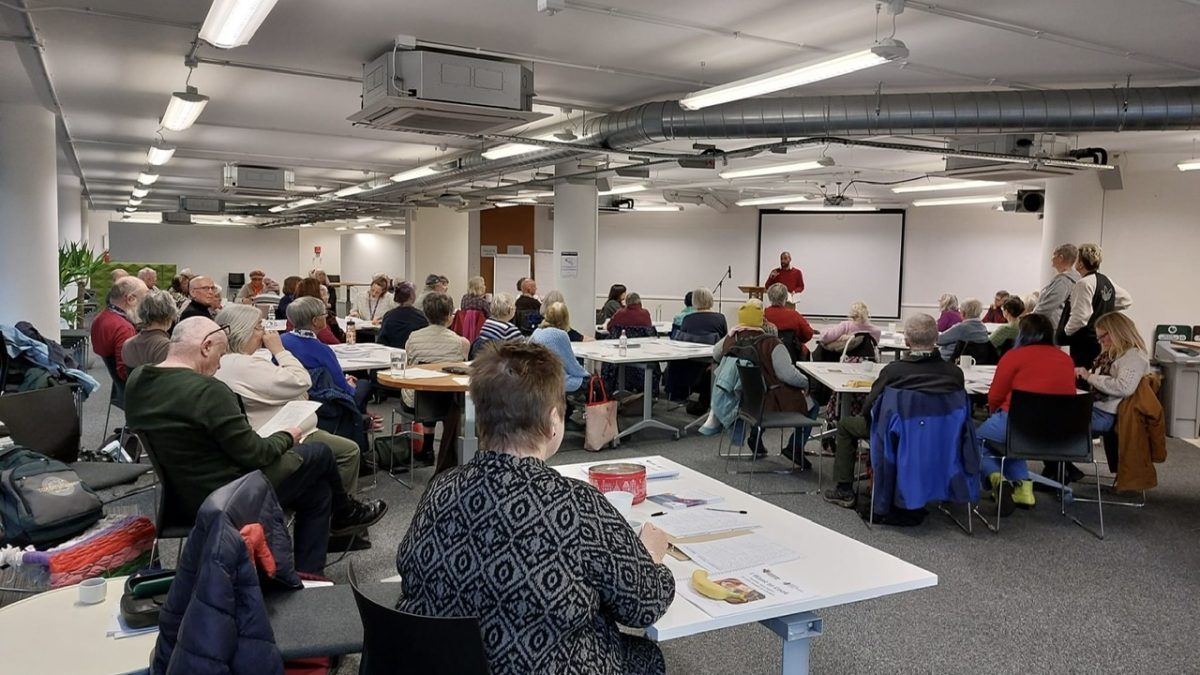Features / older people
‘People just want the plucky pensioner stuff’
Founded in 1993, the Bristol Older People’s Forum (BOPF) is a charitable membership organisation that supports people in Bristol aged 55 or older. With almost 3,000 members, its goal is definitely not for older people to be viewed as “plucky pensioners”, “cranks” or “superhuman jumping out of aeroplanes for charity”, as Ian Quaife, BOPF engagement and development manager, explains.
Rather, the group works to ensure all older people in the city are seen as human. Or, to quote their website, to ensure all older people are treated as “equal, valued and participating member(s) of the community”. There are only a handful of community groups for older people across the country. Leeds has a pretty big one. As does Manchester. But Bristol has one of the oldest and largest.
BOPF caters to a wide variety of people. Some of their youngest members, 55-year-olds, “don’t think they’re old”, while some members in their 70s are grappling with mobility issues. Some members struggle with technology – “we’ve got members that find it really difficult when local banks are closed because they don’t do banking online” – while others “are fine on Zoom and email and everything else”.
is needed now More than ever
Perhaps unsurprisingly, there is one issue that unites all members: buses.
“Transport’s quite an interesting one,” Ian says, “You’ll get people at 55 talking about the buses and you’ll get people at 85 talking about the same issues around the buses, i.e. the buses are crap in Bristol.”

Ian Quaife is the development and engagement manager at BOPF – photo: Seun Matiluko
Nevertheless, as Ian explains, “the kind of challenges you have, say, when you’re 60 can be completely different to when you’re 95, in terms of health challenges and the way you think about things. But there’s a kind of preoccupation, I think, with social care. They’re retired now, they’ve got to do activities, so let’s impose activities on them.”
Instead of making assumptions about what older people want or need, BOPF tries to adopt what Ian has coined a “social model of age”.
The social model of disability, a term of art coined by activists and academics in the 1970s, says that society is the problem, not disabled people. Barriers imposed by society, like a building without stairs or a school without adequate support for special needs pupils, are what prevent disabled people from thriving rather than their disability.
Building on this, Ian sees adopting a social model of age as asking what society could be doing more of for older citizens, of thinking of “older people as active citizens”.
He explains: “If you want funding (from the council) the funding is in adult social care, the funding is in vulnerability…We get money from the city council to do stuff but if we were to portray older people as forlorn or lonely or vulnerable etc…We would get a lot more funding.”
That’s not to say some older people are not lonely.
Ian says “there’s quite a high incidence of loneliness” among male members of BOPF, which is one of the reasons why BOPF recently set up a music club at the Bristol Beacon as a way for older men to find something to connect over.
At the club, called ‘My Music, My Memories And Me‘, “people come along, talk about a favourite bit of music they like, why they like it and where they bought it”. Tracks discussed at the last few meetings include Diamonds Are a Girls Best Friend by Eartha Kite, One Love by Bob Marley and the Wailers and Bridge Over Troubled Water by Simon & Garfunkel.
Despite the reality that some older people really are vulnerable and lonely, it is incredibly important to be careful with language.
Ian explains: “The elderly. The disabled. I think that’s quite offensive to a lot of people, but it’s still used in the media. I think you’re homogenising this big cohort of people – the elderly. We would always say older people or older adults or elders. We’re always discussing language.”
Nevertheless, BOPF members also discuss many other issues too. That’s why the group hosts monthly open forum meetings at Triodos Bank in the city centre, a space for organisations in the city to get exclusive access to one of the most knowledgeable focus groups in the city. Around 60 members attend each session. In early February, a representative from the new Temple Quarter development came down to Triodos to present and consult with the group.
Ian says BOPF is working closely with the Temple Quarter team to ensure the new development “recognises older people’s needs and disabled people’s needs. Things like seating and safe accessible toilets.”
After the Temple Quarter presentation, next up was Jonathan Rossiter, a professor of robotics at the University of Bristol.
Alongside his academic work, Rossiter is the project lead on Vivo Hub, a project created by academics from the University of Bristol, UWE, Imperial College, UCL and the University of Strathclyde to use robotic technology to assist older and disabled people in living healthy and active lives.
At the BOPF meeting, Rossiter showcased ‘the right trousers’ – “soft robotic clothing” which, not too dissimilar to Wallace and Gromit’s “wrong trousers”, would help older people “keep up with their grandchildren” y maintaining a steady walking pace.
Some members had questions – “can you put robotic trousers in the washing machine?” – others were alarmed and others still were bemused. Most seemed excited.
Stereotype older people at your peril.
BOPF has several LGTBQ+ members for example, who don’t take kindly to the common trope of older people as being intolerant.
Ian says: “I interviewed one of our trans members. She transitioned 25 years ago, so she’s kind of like a veteran, but how she sees the world was really interesting. And what we’ve found, in terms of LGBTQ+ members, is that a lot of institutions like care homes, even some of the independent living places, they don’t really have any policy around sex and sexuality at all for older people.
“So, you get to a certain age and it’s not discussed and it’s an area that I think they need to think about. Sexually transmitted disease has gone up in the older population anyway.”
In 2023, 201 men aged 65 or over were diagnosed with sexually transmitted infections in South West England – 32 more than the year before and 78 more than the year before that.

When people join BOPF they’re asked what issues matter most to them – photo: Seun Matiluko
Another way in which BOPF members don’t meet the mainstream media stereotype of older people is through activism. The group boasts several animals rights and climate change activists. In fact, recently, BOPF hosted a virtual climate change poetry workshop on Zoom where one member, Penny, wrote a reflective poem called Dilution:
When will we learn?
We poured, poured, poured the sewage in
Until our rivers stank
So, we just thought it needed more water
And we abused our estuaries
When will we learn?
With support from the Bristol Climate & Nature Partnership and the National Lottery’s Community Fund, BOPF is currently working on a Climate Action Plan to target climate challenges ‘as identified by older people’. The Plan is due to launch in July and priorities include to champion ‘better access to parks and public spaces for older people’ and to improve ‘consultation and public involvement around liveable neighbourhoods’.
Bristol City Council’s controversial East Bristol Liveable Neighbourhood trial has energised several members of the BOPF, including Derek, a Barton Hill resident who has appeared at many of the recent protests.
Ian says: “He’s an older white working-class fella and he’s now working closely with young Somali mothers. I quite like that idea that there’s solidarity between all these different people…They haven’t got a chemist in the area now.
“So, Derek’s been collecting some older people’s prescriptions and driving from where he lives in Barton Hill to Avonmeads. It’s a bit of a trek and he can’t walk it. And he said that’s really difficult now because they’re blocking off all the side roads.”
Housing is another key issue on many BOPF members’ minds – “at the moment we’re focussing on fire safety and cladding issues” – as is, perhaps the most serious issue of them all: death.
While BOPF gains new members every year, they also lose members every year too.
That’s part of the reason why Suzi Mackenzie, BOPF project coordinator, set up a ‘death cafe’ for members two years ago.
In 2004, a Swiss anthropologist came up with the idea of arranging regular Café Mortels, spaces for people to meet and talk openly about death. The idea came to Britain in 2011 and BOPF adopted the practice in 2023 as a way for members to speak openly about mortality, in ways they may not always get the opportunity to do with their families.
BOPF’s death cafe has 12 members but others that predate them in the city, including the one at St Werburgh’s Community Centre and another at Arnos Vale Cemetery, have up to 40 members.
The plan is to cap the BOPF death cafe at 15 members, to allow everyone who attends to feel comfortable enough to speak. Towards the end of the open forum meeting in February, the BOPF death cafe got two new sign ups.
For several members, death cafes are “quite uplifting”, Ian says, “People want to talk about death. They want to talk about the future.”

This article is taken from the March/April 2025 Bristol24/7 magazine
Main photo: Bristol Older People’s Forum
Read next:
- The Bristol dance company for older people
- Review: If You Fall, The Weston Studio, Bristol Old Vic – ‘An urgent, devastating and taboo-busting exploration of older people’s care’
- Film shares stories of older people in Bristol
 Our newsletters emailed directly to you
Our newsletters emailed directly to you

















